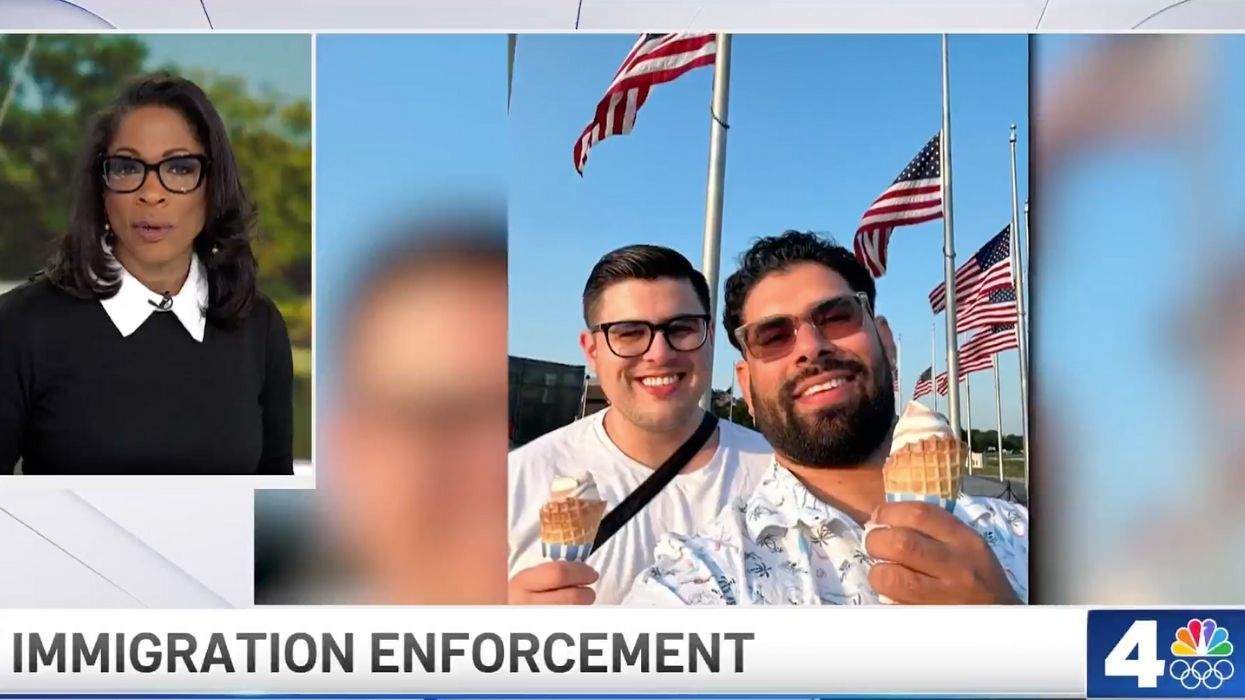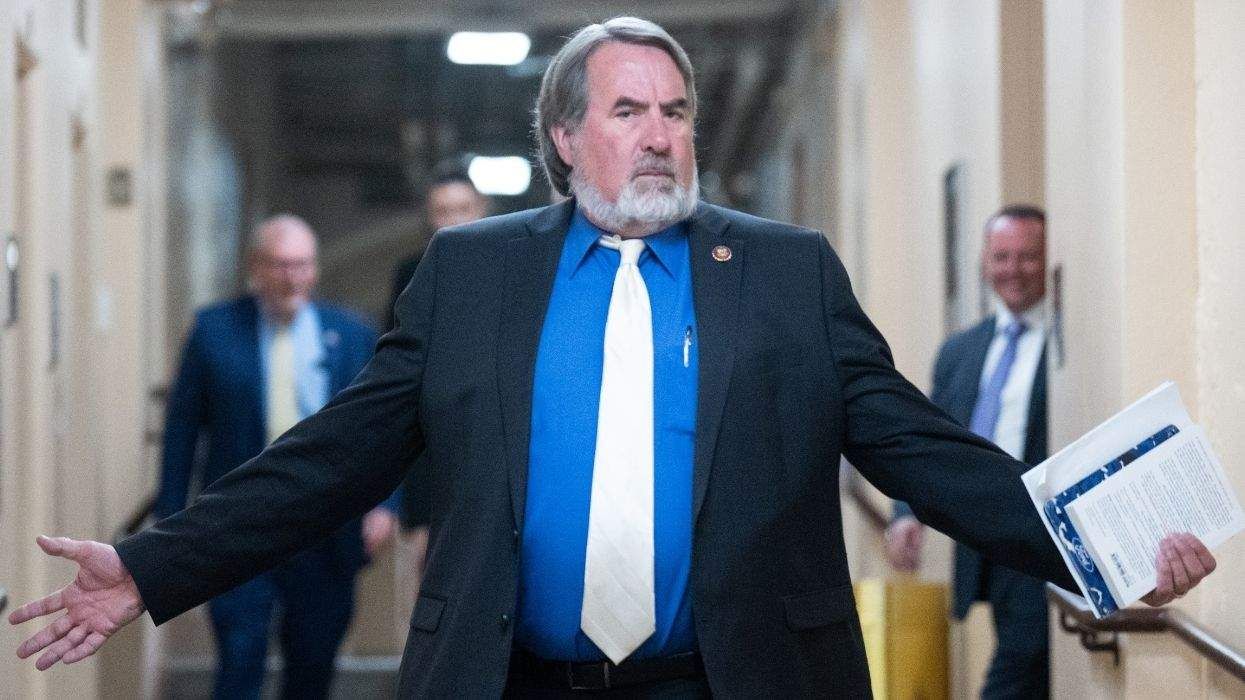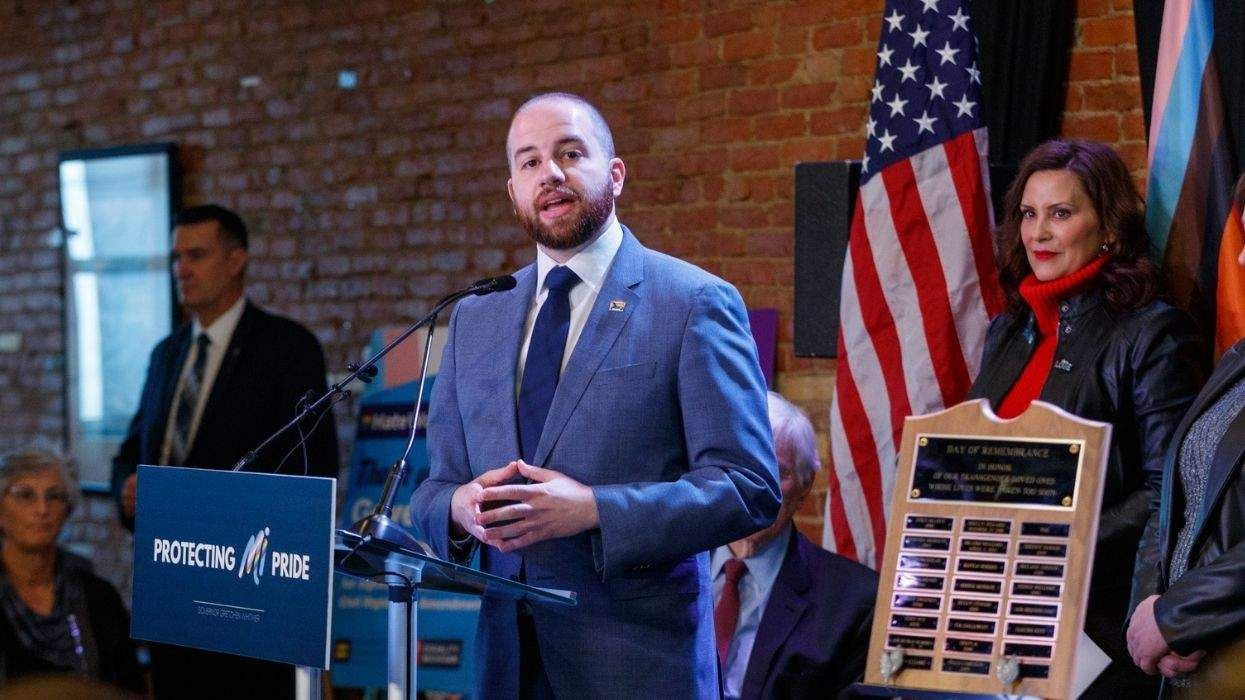Amid a flurry of pro-equality news around the country, the latest federal court to rule definitively in favor of marriage equality is the Ninth Circuit Court of Appeals, based in San Francisco.
That's no surprise -- the judges had previously ruled against a similar marriage ban in California's Proposition 8 case and were clearly skeptical of the justifications put forth by Idaho state officials and the Nevada-based Coalition to Protect Marriage in defending each state's ban on same-sex marriage. (Nevada elected officials declined to defend their state's ban, so the antigay group stepped in.) Similar rulings are expected soon involving several more states.
But the latest ruling from a three-judge panel in the Ninth Circuit does contain some important language solidifying not just the freedom to marry but rights for LGBT Americans on a wide range of issues.
Among the highlights: The court makes short work of the antigay talking points put forward by both Idaho and the antigay Coalition to Protect Marriage attorneys, pointing out the nonsensical contradictions between the laws and their purported goals:
If Nevada were concerned, as the Coalition purports it to be, that state recognition of same-sex unions would make the institution of marriage "genderless" and thereby undermine opposite-sex spouses' commitments to each other and their children, it would be ill-advised to permit opposite-sex couples to participate in the alternative domestic partnership regime it has established. However, Nevada does just that. ...
It would seem that allowing couples who want to marry so badly that they have endured years of litigation to win the right to do so would reaffirm the state's endorsement, without reservation, of spousal and parental commitment. From which aspect of same-sex marriages, then, will opposite-sex couples intuit the destructive message defendants fear? Defendants offer only unpersuasive suggestions. ...
They appear to contend that such a father will see a child being raised by two women and deduce that because the state has said it is unnecessary for that child -- who has two parents -- to have a father, it is also unnecessary for his child to have a father. This proposition reflects a crass and callous view of parental love and the parental bond that is not worthy of response. We reject it out of hand.
Writing for the unanimous court, Judge Stephen Reinhardt also rolls his eyes at the suggestion by Idaho governor Butch Otter that limiting marriage to heterosexual couples creates a stabilizing effect that will diminish if gays and lesbians can marry.
He also states, in conclusory fashion, that allowing same-sex marriage will lead opposite-sex couples to abuse alcohol and drugs, engage in extramarital affairs, take on demanding work schedules, and participate in time-consuming hobbies. We seriously doubt that allowing committed same-sex couples to settle down in legally recognized marriages will drive opposite-sex couples to sex, drugs, and rock-and-roll.
The court also upholds heightened scrutiny for cases involving anti-LGBT discrimination. This will have important repercussions in cases beyond just the marriage lawsuits; the court will extend the same level of scrutiny in future cases on other issues related to LGBT people and equality.
In its words and its deed, last summer's landmark Supreme Court ruling striking down the core of Defense of Marriage Act in a case known as Windsor v. U.S., established a level of scrutiny for classifications based on sexual orientation that is unquestionably higher than rational basis review. In other words, Windsor requires that heightened scrutiny be applied to equal protection claims involving sexual orientation.
Cutting to the heart to the matter, the court rules in unequivocal terms that discrimination against LGBT people is unconstitutional. The judges then go even further, pointing out that discrimination is harmful to the country.
The official message of support that Governor Otter and the Coalition wish to send in favor of opposite-sex marriage is equally unconstitutional, in that it necessarily serves to convey a message of disfavor towards same-sex couples and their families. This is a message that Idaho and Nevada simply may not send. ...
The lessons of our constitutional history are clear: inclusion strengthens, rather than weakens, our most important institutions. When we integrated our schools, education improved. ... When we opened our juries to women, our democracy became more vital. ... When we allowed lesbian and gay soldiers to serve openly in uniform, it enhanced unit cohesion. ... When same-sex couples are married, just as when opposite-sex couples are married, they serve as models of loving commitment to all.
Crucially, the decision demolishes claims that marriage equality is a "new right." In the Ninth Circuit and in numerous other courts, antigay lawyers have argued that the U.S. Supreme Court's previous rulings that marriage is a fundamental right only apply to heterosexuals. The antigay groups pointed to the Glucksberg case, involving assisted suicide, to support the claim that "Our articulation of such fundamental rights must, we are told, be 'carefully formulat[ed].'"
"However," Reinhardt writes, "'careful' does not mean 'cramped.'" He continues:
In each case, the Supreme Court referred to -- and considered the historical roots of -- the general right of people to marry, rather than a narrower right defined in terms of those who sought the ability to exercise it. These cases rejected status based restrictions on marriage not by considering whether to recognize a new, narrow fundamental right ... but rather by deciding whether there existed a sufficiently compelling justification for depriving plaintiffs of the right they, as people, possessed. ... Lawrence rejected as wrongheaded the question whether "homosexuals" have certain fundamental rights; "persons" -- of whatever orientation -- are rights-holders.















Charlie Kirk DID say stoning gay people was the 'perfect law' — and these other heinous quotes
These are some of his worst comments about LGBTQ+ people made by Charlie Kirk.